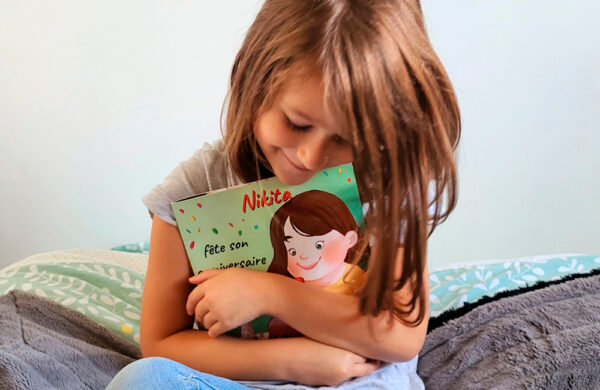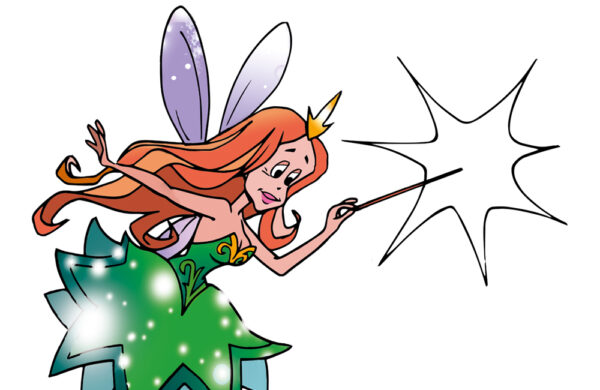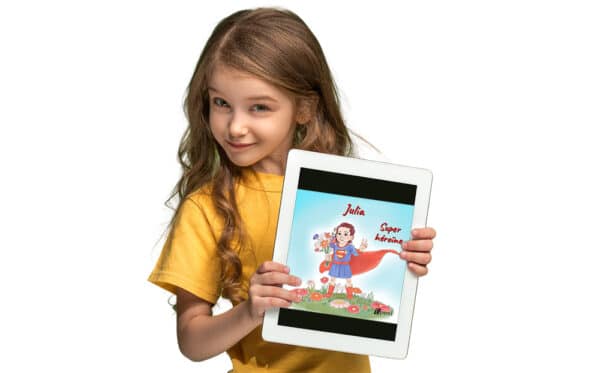Superheroes have captured the imagination of children for generations, sparking their curiosity and stimulating their creativity. This deep fascination with superheroes can be attributed to several factors inherent in the nature of childhood and developmental psychology. Children are naturally drawn to heroic figures with extraordinary powers, embodying goodness, justice, and courage. These fantastic characters offer children a world of adventure, hope, and strong emotions that contribute to their personal development.
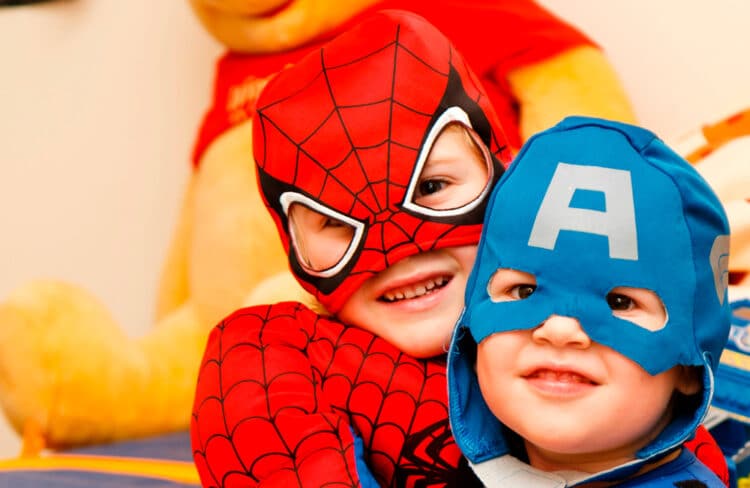
Why choose a superhero story for a child?
Children are naturally drawn to superhero stories because of their exhilarating combination of fantastical elements, extraordinary characters, and epic tales. Superheroes embody extraordinary powers and superhuman abilities that fuel children’s imaginations and awaken their curiosity. These characters offer a playful escape from everyday reality, plunging young readers into extraordinary worlds where anything is possible. In addition, superhero stories often centred on the struggle between good and evil, capture children’s attention by presenting simple but profound moral dilemmas. Children instinctively identify with heroes, aspiring for their courage, determination, and sense of justice. These stories offer children a powerful way to explore their own emotions, dream big, and develop an early sense of morality, contributing to their emotional and cognitive development in an entertaining and educational way.

Superheroes and children’s imagination
Superhero stories forge a deep bond with children’s vivid imaginations, providing fertile ground for creative exploration and the development of imaginative thinking. These extraordinary tales transport young readers into fantastical worlds where the boundaries of reality are pushed back, stimulating their imagination. Superheroes, gifted with extraordinary powers and evolving in extraordinary universes, broaden children’s mental horizons by introducing concepts and ideas beyond the ordinary. Children are encouraged to envision infinite possibilities, create captivating scenarios, and invent exciting adventures in their own minds. This interaction with imaginary worlds enhances children’s creativity, encouraging them to create, dream, and explore their artistic potential. In this way, superhero stories become an inexhaustible source of inspiration for children’s imaginations, stimulating their curiosity and feeding their thirst for wonder.
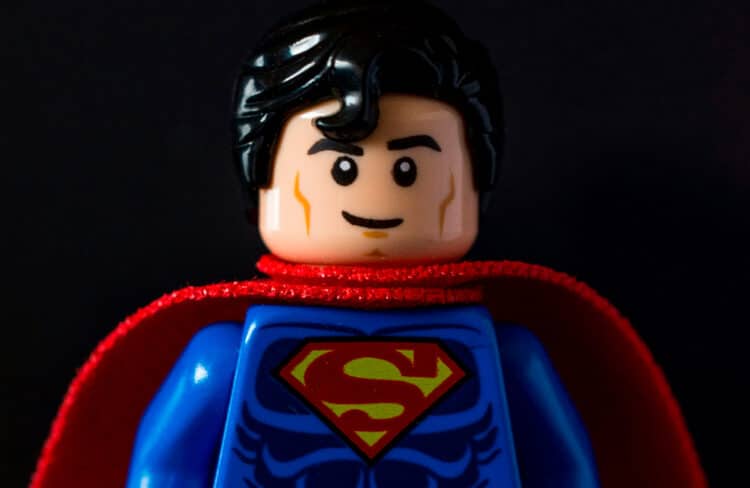
The moral impact of superheroes on children
The values of superheroes establish a significant link with childhood by offering young readers solid and inspiring moral guidelines. Superheroes, often endowed with extraordinary powers, embody principles such as justice, compassion, courage, and loyalty. These simple yet powerful values resonate with children who, at a crucial stage in their development, are looking for moral role models and guides. Superhero stories provide clear examples of ethical behaviour and right choices, helping children to understand the fundamental notions of right and wrong. The stories emphasise personal responsibility, altruism, and defending the oppressed, teaching children valuable lessons about understanding others and the importance of doing good. These superhero values become anchoring points for children, guiding them in the formation of their own moral code and contributing to the forging of caring and responsible individuals with a social conscience. In this way, superheroes become not only fantastic icons but also essential catalysts in building children’s character.

The positive side of personalised superhero books
Personalised superhero books, such as those published by Eponi, add a unique dimension to children’s natural fascination with legendary heroes. By personalising the story with the child’s name, appearance, and sometimes even personal preferences, these books create an immersive experience where the child becomes the protagonist of their own heroic tale. With its range of personalised books, Eponi lets children experience unique adventures by putting them right at the heart of the action, reinforcing their emotional involvement and their attachment to superheroes.
Personalised books are not only a source of entertainment, they also provide opportunities for learning and development. By finding themselves in a variety of situations, children can explore different emotions, solve problems, and develop self-confidence. This makes personalised superhero books a powerful educational tool, encouraging children’s cognitive and emotional development while keeping them entertained.
In addition, personalised superhero books create long-lasting memories for children. When they see their name and face in the story, it creates a memorable and personal experience. These positive memories associated with reading and imagination help to cultivate a love of reading among children, an essential aspect of their education.
Eponi’s personalised superhero book also plays a crucial role in immersing children in unique stories where they become the hero of their own tale, strengthening their bond with these legendary characters.

Are superhero stories bad for children?
The impact of superhero stories on children is the subject of complex debate within the educational community and among parents. Some point to the positive aspects, such as reinforcing moral values, encouraging imagination, and developing creativity. However, others express concern about possible harmful effects. Some critics suggest that constant exposure to scenes of violence or confrontation between good and evil could have negative repercussions on children’s behaviour. In addition, the tendency to simplify moral conflicts in these stories could, according to some, influence children’s perception of reality by encouraging them to view situations in an overly simplistic way. It is essential to consider the specific content of superhero stories and to regulate their use according to children’s age and maturity to minimise any negative impact. Ultimately, how superhero stories affect children depends largely on a variety of factors, and a balanced and educational approach is needed to maximise the benefits while minimising the potential risks.
In conclusion, the appeal of superheroes to children is complex and multifactorial. From aspirations to moral values to immersion in fantastical worlds, superheroes offer a universe rich in possibilities for young growing minds. Personalised superhero books, such as those offered by Eponi, add a special touch to this fascination by allowing children to become the heroes of their own stories, creating unique and unforgettable experiences. But be careful not to let your children think that everything is either black or white.


